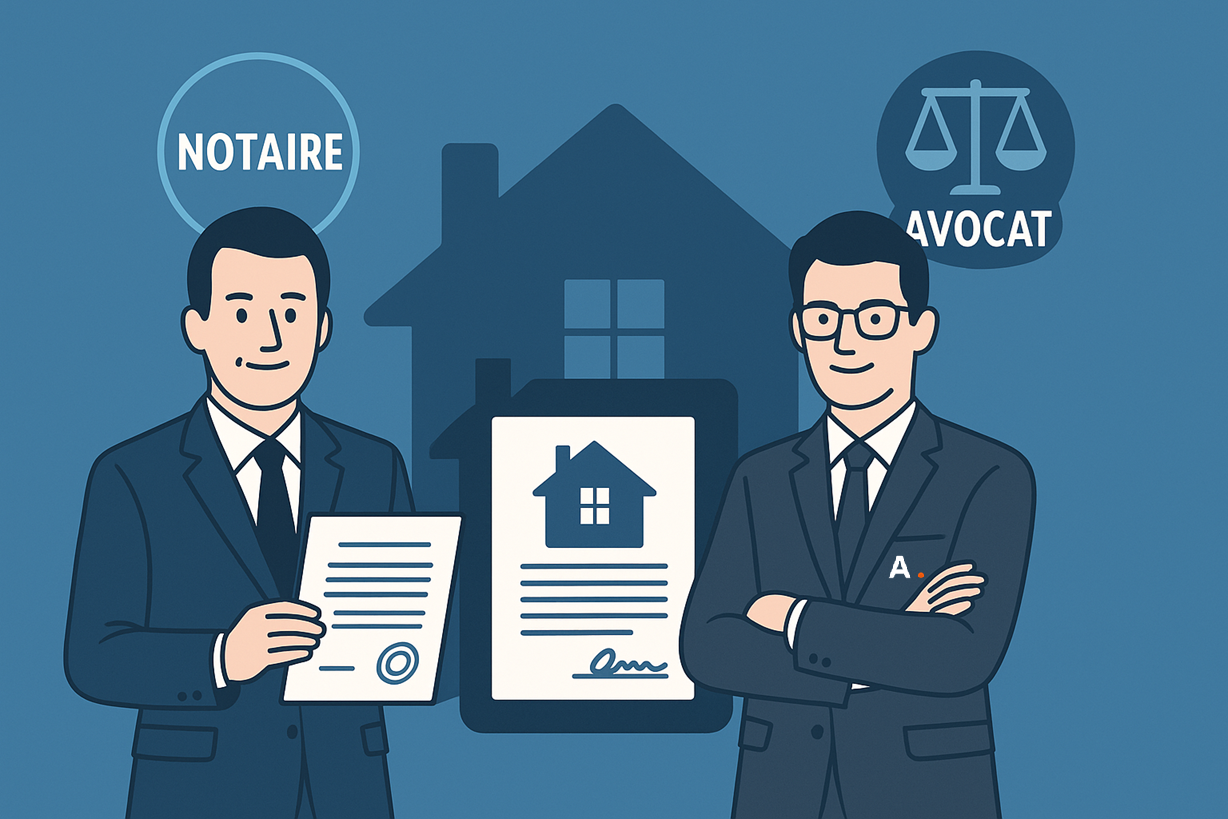What does a lawyer do in real estate transaction?
Real estate transactions are important milestones in a person’s life. That’s why it’s crucial to surround oneself with competent professionals to ensure that all legal formalities are properly respected. Among the professionals who can be involved in a real estate transaction is a lawyer. But what does a lawyer do in a real estate transaction?


Legal advice and assistance in negotiation
In a real estate transaction, a lawyer can intervene at several levels. First, they can advise their client in negotiating a sales or purchase contract for a real estate property. They can help determine the terms and conditions of the transaction based on their client’s interests.
Indeed, a lawyer has a perfect knowledge of real estate legislation and can thus advise their client on the various stages of the transaction. They can also assist their client in preparing the necessary documents such as sales or lease contracts, quotes for work, descriptive statements of division, etc.
Drafting of the sales agreement
Once the negotiation is completed, the lawyer can help their client draft the sales agreement. It is important that this document be drafted precisely and clearly to avoid any future disputes. The lawyer can thus ensure that all important clauses are mentioned, such as the date of the transaction, the price, the payment terms, warranties, withdrawal periods, etc.
Verification of the legal situation of the real estate property
Before proceeding with the sale or purchase of a real estate property, it is important to verify its legal situation. The lawyer can thus help their client verify the validity of the property titles and ensure that the real estate property is not subject to any disputes. They can also verify the compliance of the real estate property with current standards and ensure that the necessary authorizations have been obtained.
Assistance in disputes
In case of a dispute related to the real estate transaction, the lawyer can represent their client before the courts. Disputes may concern the sale or purchase of a real estate property, hidden defects, co-ownership conflicts, disputes related to construction or renovation work, etc. The lawyer can thus help find an amicable solution or initiate legal proceedings to defend their client’s interests.
Other advantages of using a lawyer
The advantages of using a lawyer in a real estate transaction are numerous. First of all, a lawyer is an expert in law who has in-depth knowledge of real estate legislation. They can thus provide a high-quality service while respecting the legal rules in force. In addition, the lawyer ensures that their client’s interests are protected.
Conclusion
A lawyer is a legal professional who can intervene in all stages of a real estate transaction. They can advise their client in negotiating the sales contract, draft the sales agreement, verify the legal situation of the real estate property, and represent their client in case of a dispute. They thus bring important legal security to the real estate transaction. It is therefore advisable to consult a lawyer specialized in real estate transactions for any related project.
About the Author :
Business lawyers, bilingual, specialized in acquisition law; Benoit Lafourcade is co-founder of Delcade lawyers & solicitors and founder of FRELA; registered as agents in personal and professional real estate transactions. Member of AAMTI (main association of French lawyers and agents).
FRELA : French Real Estate Lawyer Agency, specializing in acquisition law to secure real estate and business transactions in France.
Paris, 19 Rue du Colisee, 75008 Paris
Bordeaux, 78 Cours de Verdun, 33000 Bordeaux
Lille, 40 Theater Square, 59800 Lille

This article is provided for general information only and may not reflect the most recent legal or tax developments. It does not constitute legal advice. Please contact us for personalised guidance before making any decision.




